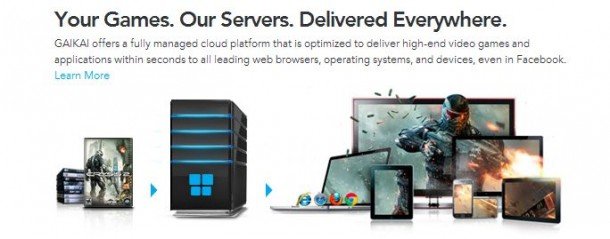
David Perry is a cloud-based gaming evangelist, as well as the man behind MDK, Earthworm Jim and Enter the Matrix. Sony are big fans too; they just bought his cloud-based gaming service, Gaikai, for a $380 million.
Gaikai lets you stream games via your browser which are actually running on remote PCs elsewhere in the world. As long as your device can handle basic video, and your connection is good enough, you can play high-end games on extremely modest PCs, consoles, or even standalone TVs.
But what does this mean for PC gamers? We talked to David at Develop and asked him whether the days of neon-lit monster rigs are over.
The PC model reminds Perry of the days of arcades. According to David, there are always going to be gamers willing to pay a premium in order to experience the most powerful technology available. Back in the day, those players went to arcades. These days, they own PCs.
“It's a bigger question than it sounds. I'd go back to the start of the industry. Arcades were a very important piece," says Perry.
“You could play games at home, but if you wanted the deluxe version you had to buy a $10,000 cabinet. So we all just put quarters into the cabinet and took turns. Since then there's been this interesting shift as things at home have become more capable.”

“As it got closer and closer to arcade quality you could see people drifting," continues Perry. "Then, when it got to arcade quality at home, and the arcades couldn't keep up, people asked: “Why would I play at the arcades? I have it right here.”
The biggest gaming news, reviews and hardware deals
Keep up to date with the most important stories and the best deals, as picked by the PC Gamer team.
“I think the PC business is that on steroids,” explains the Gaikai founder.
David admits that PC gamer's passion for hands-on modification will remain, but points out that powering the cloud could push even the most experienced overclockers to their limit.
“So you see these guys making overlocked rigs. Solid state drives come along and that's a given. Now you've got Radeons with solid states so you can get the maximum performance possible. You just put a $1,000 card in your machine. What if we were to put two in the cloud? Or what if we could offer you four? That idea of having scalability in the cloud beyond the price that you'd be willing to pay at home is this very interesting."
“The unlimited power of the cloud is the draw for me. It's something that takes some time but it's inevitable. The super super hardcore gamers are going to keep building their rigs until one day they see something and they say “God dammit I don't want to spend that much money, but I want to experience that.”
“That day will come. And it will come from the cloud,” concluded Perry.

